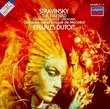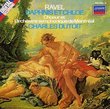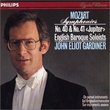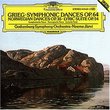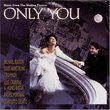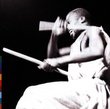| All Artists: Chicago Symphony Orchestra, Roxana Constantinescu, Nicholas Phan, Kyle Keltelsen, Igor Stravinsky Title: Stravinsky: Pulcinella Members Wishing: 0 Total Copies: 0 Label: CSO Resound Original Release Date: 1/1/2010 Re-Release Date: 1/26/2010 Genre: Classical Style: Symphonies Number of Discs: 1 SwapaCD Credits: 1 UPC: 810449019187 |
Search - Chicago Symphony Orchestra, Roxana Constantinescu, Nicholas Phan :: Stravinsky: Pulcinella
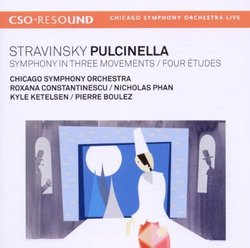 | Chicago Symphony Orchestra, Roxana Constantinescu, Nicholas Phan Stravinsky: Pulcinella Genre: Classical
|
Larger Image |
CD DetailsSimilarly Requested CDs
|
CD ReviewsGrand Master Boulez and the CSO J Scott Morrison | Middlebury VT, USA | 02/05/2010 (5 out of 5 stars) "This CD celebrates the fact that this year Pierre Boulez will be 85 -- can you believe that of this one-time enfant terrible? -- and is being fêted by the Chicago Symphony Orchestra, designated for this season as the Helen Regenstein Conductor Emeritus, having held the Principal Guest Conductor title since 1995. He began conducting a series of 'birthday' concerts last year (2009) and has brought the orchestra to Carnegie Hall with much of the music on this disc. This hybrid SACD, released on the orchestra's own label CSO:Resound, contains parts of two Chicago Symphony Hall concerts featuring music by Stravinsky, a composer Boulez has always had a special relationship with. The 'Symphony in Three Movements' was written in 1942-45 to a commission by the New York Philharmonic, his first major work after coming to live in the United States. Neoclassical in form and substance, it is dry as a martini and quite as bracing. There are, as Boulez remarks in the booklet interview, some elements reminiscent of 'Rite of Spring' in the first movement, but the second movement is pure neoclassicism. And we're back to astringency and impeccable taste in the final movement until the conclusion which is Rite-ish again. An impressive work that is, perhaps, an acquired taste but one that grows into love on further acquaintance. Boulez and the CSO are strikingly fresh and clean in their interpretation. 'Four Études' started in non-orchestral form. The first three were originally for string quartet (Three Pieces for String Quartet, 1914) and the fourth was, unusually, originally composed for piano roll in 1917. The orchestral version was premièred in 1930 by Ernest Ansermet. It really is hard, given the wholly original orchestration of these pieces, to credit that they were originally for string quartet or for pianola. The first three were written in the period right after 'Rite of Spring' and obviously Stravinsky was trying for something entirely new, and indeed these were some of his first forays into the neoclassical world. The first is a lopsided Russian march with some foreshadowing of 'Les Noces', the second is witty and sardonic, the third a kind of hymn. The fourth begins with a brilliant extended fanfare and goes on to orientalisms with some echoes of 'Petrushka'. The CSO are brilliant here. Boulez has the ability to convey clarity of construction in tandem with Stravinsky's muted but present wit and, dare I say it, heart. The glory, though, of this disc is the live performance (recorded March 3, 2009 at Symphony Hall) of 'Pulcinella'. This work, usually given as the much shorter Suite, is given complete, and wonder of wonders, the booklet includes the complete sung Italian texts with English, French and German translations (sadly, a rarity these days). 'Pulcinella' (1919, commissioned by Diaghilev, première led by Answermet) is a ballet with vocal soloists, based on the commedia dell'arte character Pulcinella (Punch, Polichinelle). It is based on music from the Italian baroque; originally it was thought that music was by Pergolesi, but in fact is from music by Domenico Gallo, Carlo Ignazio Monza, and possibly Alessandro Parisotti and Unico Wilhelm van Wassenaer. But the orchestration and continuity are pure Stravinsky, and this music has become one of Stravinsky's most beloved neoclassical works, notable to many for such things as the raucous trombone smears, clever use of piccolo and double bass, and wholly modern harmonies and rhythms. In this performance the sterling soloists are mezzo Roxana Constaninescu, tenor Nicholas Phan, and bass-baritone Kyle Ketelsen. This is, without question, the best recorded performance of the complete 'Pulcinella' I've ever heard; that it is live makes it all the more electric. Recorded sound is state-of-the-art in both SACD and standard CD. Laudable on all counts. Don't hesitate. Scott Morrison" Boulez's Pulcinella is emotionally drab, without the slighte Santa Fe Listener | Santa Fe, NM USA | 03/02/2010 (3 out of 5 stars) "I've generally been a non-fan of Boulez's Stravinsky cycle on DG, finding much of it harsh in recorded sound and impersonal to the point of grayness. Stravinsky himself favored mechanical reproduction of his scores and disdained the cult of the romantic conductor, yet his sharply etched readings still manage to carry a jolt of magnetic energy. On this new CD, Boulez gives a softer, more yielding reading of the Symhony in Three Movements than I expected; indeed, given the tendency to perform this work as a distrubing testament to wartime suffering, Boulez's reading is surprisingly bright, even chirpy. The orchestra plays with reserved virtuosity, if such a thing is possible, showing us how perfectly Stravinsky's spare chords can be voiced and how delicately the jerky counterpoint can be phrased. In short, this reading is in sharp contrast to the composer's on Sony(one of his very best), where intensity is underpinned almost with terror. Although his popular fame rests on three large-scale ballets, Stravinsky wrote an enormous number of miniatures. I suppose only true aficionados can keep them straight. If you asked me to identify the Four Etudes blind, I certainly couldn't. Here they receive appropriately ironic readings in Boulez's familiar watchmakr preciseness. A tangy fillip. The main course, the complete score to Pulcinella, is quite tricky to bring off, and there are few really convincing readings (the composer's mono version from Cleveland is one--it can be found in Sony's big box of the composer's works conducted by him). As with Baiser de la fee, which sounds so much like Tchaikovsky that it's hard to know whether it should be conducted as Tchaikovsky, this pastiche of music that Stravinsky mistakenly thought was by Pergolesi (a musicology tale too tedious to recount) sounds so Neapolitan that it's tempting to mkae it sound like bumptious commedia dell' arte. If you try it the other way, in Stravinsky's dry, detached style, I don't think it works at all. The composer solved the dilemma, unexpectedly, by going in the first direction, but Boulez's reading is sober and civilized, without any touch of the carnival. Too bad, since the reading is so clean and carefuly shaped. Would we expect anything less? Even the dull Riccardo Chailly manages to add more verve to the score. As far as the singers go, they are fine technically but sound drab against Boulez's emotionally inert background. All in all, I will stick with the composer and Claudio Abbado in this delightful work, which so many conductors seem to appraoch without delight." Have fun with this toy at home Dean Frey | Red Deer, AB CANADA | 02/25/2010 (5 out of 5 stars) "I found Phillip Huscher's interview with conductor Pierre Boulez, included in the booklet of this new CD on the Chicago Symphony's CSO Resound label, to be very illuminating. Boulez isn't at all shy about expressing his dislike for Stravinsky's neo-classical music, but he makes an exception for a work written in 1919. "Pulcinella is a different matter," he says, "because Pulcinella is a game." If so, this is a game that Boulez and his outstanding musicians play better than anyone. Recorded live at Chicago's Symphony Center exactly one year ago (February & March, 2009), this music just about jumps off the disc, it's so alive, so life-like, so real. Boulez and his crew have a number of advantages. First of all, they're recording the complete score of the ballet, rather than the better-known suite. Secondly, the music is recorded live over a number of performances, so we have the best combination of being-at-the-concert excitement and technical perfection. And thirdly, the producer, engineer, and post-production staff have assembled an amazingly life-like sound world on the hybrid SACD disc. "Pulcinella is a work I like to conduct, because it's like a toy within your hands" says Boulez. Listening to this disc in a good surround-sound setup is like playing with that toy at home. [Figures sold separately].
I've focused on Pulcinella, which I love, and which takes up the bulk of this disc. But I'm just as impressed with the 1945 Symphony in Three Movements and the 1929 orchestral arrangement of the Four Etudes. This is very highly recommended!" |

 Track Listings (29) - Disc #1
Track Listings (29) - Disc #1

